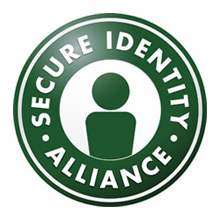 |
| The Secure Identity Alliance will identify the $50bn savings opportunity government are set to enjoy through |
On 19th & 20th March 2014 at the Connect:ID conference in Washington and the Cartes Asia conference in Hong Kong, The Secure Identity Alliance will identify the $50bn savings opportunity government are set to enjoy through the implementation of secure eServices by 2020.
The report also investigates the wider social and economic benefits of this shift to digital: from increasing convenience, trust and citizen satisfaction to stimulating private sector eService innovation, delivery and growth.
Presenting the eServices Vision 2020 study, jointly conducted by the Secure Identity Alliance and the Boston Consulting Group, SIA speakers will also reaffirm the Alliance’s commitment to helping government and NGOs accelerate eService delivery through the provision of trusted digital identity.
Achieving the kind of dramatic value outlined in the study is predicated on the ability of governments to build trust frameworks – incorporating interoperable technologies, the next generation of context-aware authentication, and, of course, privacy and security policy. Underpinning it all will be creation and supply of secure digital identities.
SIA speakers will also reaffirm |
Playing a lead role in sharing best practice and delivering this new generation of eIdentity and eDocument technologies, the Alliance offers leadership and advisory services to governments in the following areas:
- Government: modernising states, ensuring service delivery performance while increasing citizen interaction, privacy and driving convenience.
- Social protection: enabling the effective delivery and control of social inclusion, protection and reform programs.
- Health: addressing rising costs and privacy issues, and increasing access to, and management of, universal healthcare.
- Border control: leveraging electronic and biometric passport technologies as effective visa and border control to assure national and regional stability, support economic growth and help reduce illegal trafficking.
- Election: enhancing universal suffrage and increasing electoral control and integrity.
- Finance: driving financial market integrity (fraud, anti-money laundering and terrorism financing), extending governance and increasing financial inclusion.
- Energy: optimising energy efficiency programs, managing subsidies and supporting national and international energy diversity, sustainability and independence.


















